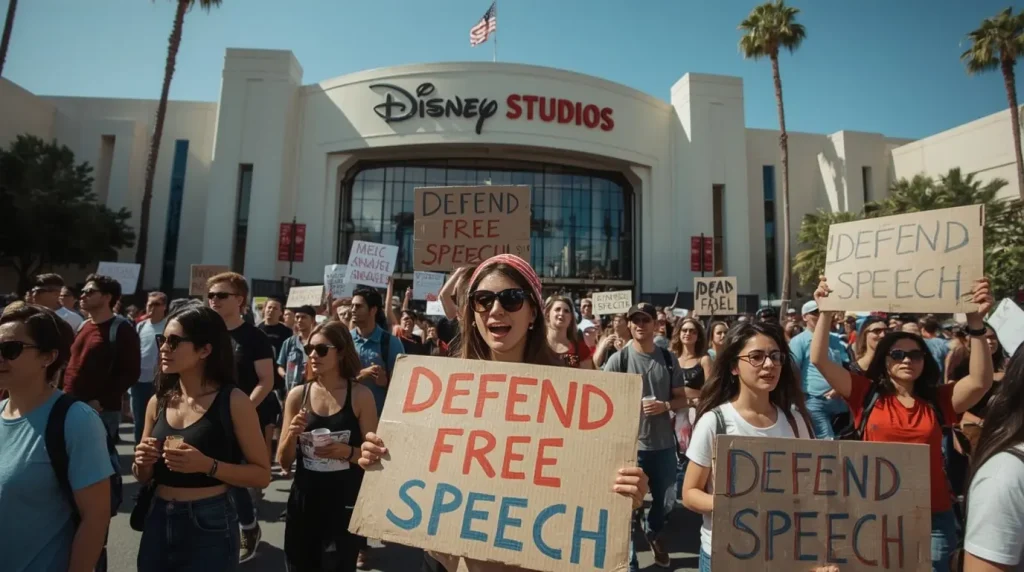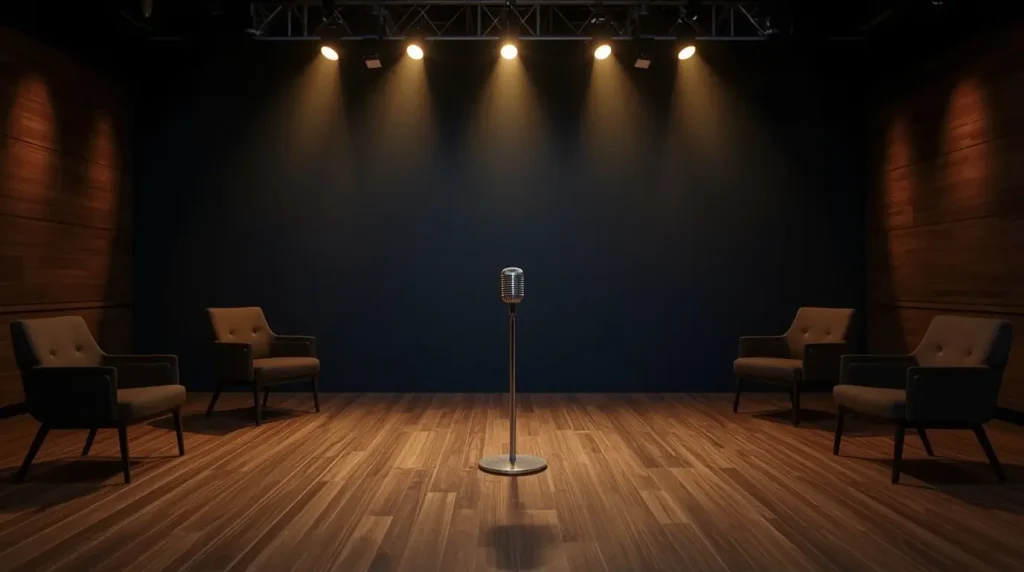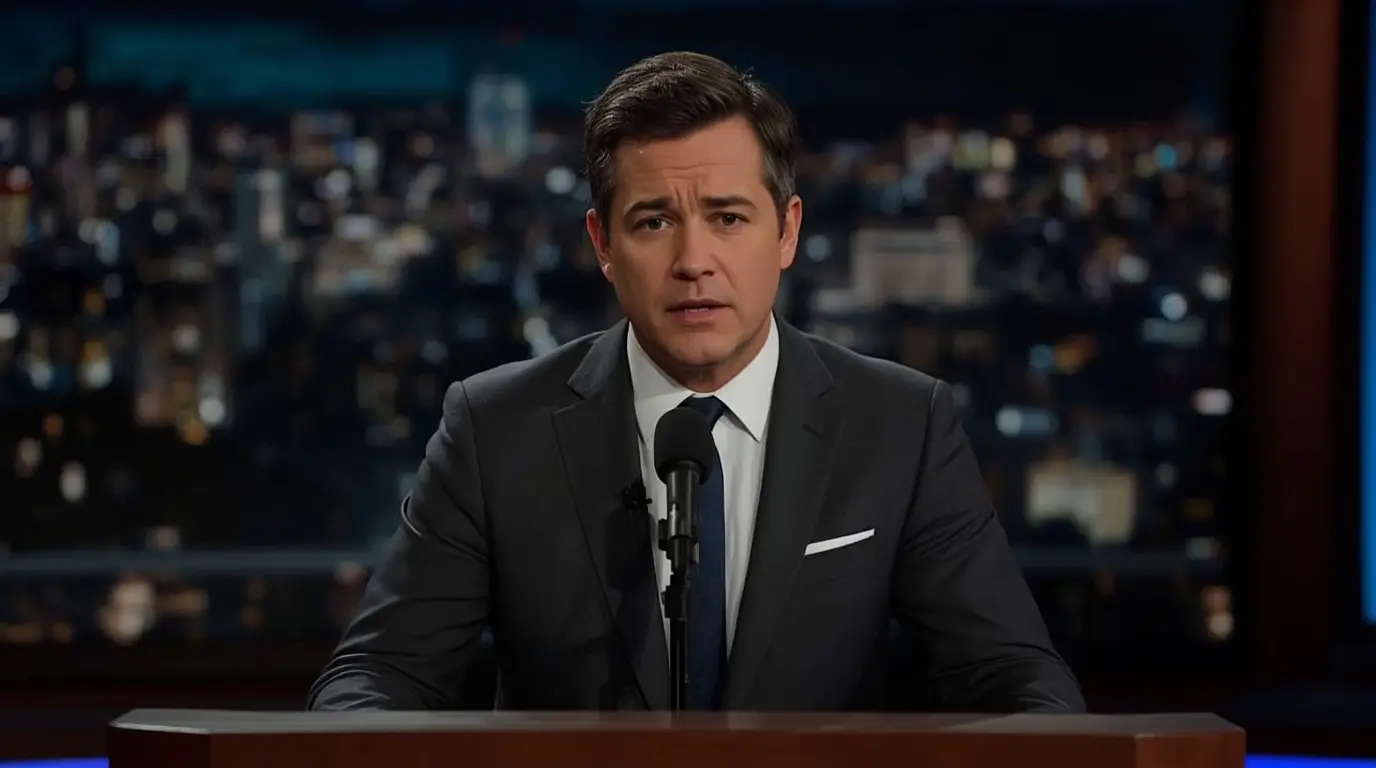The shocking plug-pulling on Jimmy Kimmel Live! by ABC has electrified show business, sparking urgent conversations around political clout, boardroom strategy, and what the future really looks like for TV tonight shows. Pitches for the episode ended just days after Kimmel linked a would-be assassin and ribbed MAGA voters, a gauge of how the line between comedy and corporation has sharpened. What goes deeper than punchlines is a turbulent mash of free expression, regulatory whiffs, and old-fashioned marketplace of ideas under pressure.
The Escalation Behind ABC’s Decision
Kimmel’s suspension was not sprung on the bosses in a Friday meeting. Stories from the room show nervous chalkboards had already filled the week as executives at Disney and ABC reacted to Kimmel’s Monday run-and-gun riff on the alleged murderer of conservative personality Charlie Kirk. Phrases like “the MAGA gang” drew immediate counterfire on the right, and Disney’s political shop slammed the “red-alert” bumper.
Things heated up quickly Wednesday afternoon after FCC chair Brendan Carr appeared on a conservative podcast and threatened to yank ABC affiliate broadcast licenses. Carr slammed Jimmy Kimmel’s remarks as “the sickest conduct possible” and cautioned that Disney may lose its local broadcast licenses. That kind of language isn’t a friendly warning; it’s a “real, serious threat” aimed at all of ABC, not just Kimmel’s late-night show.
Right around the same time, Nexstar—the station group that carries “Jimmy Kimmel Live!” in about two dozen markets—said it wouldn’t air the episode. When a big affiliate owner makes that kind of move, it kicks the heat up on Disney’s leadership team. Sources say Kimmel was ready to deliver a “very hot” monologue on Wednesday night that would have delivered a stern shot to the MAGA base, but Disney brass jumped in and urged the team to “cool it” before things really got out of hand.
The Role of Regulatory and Political Pressure
The situation heated up when FCC chair Brendan Carr stepped into the spotlight. Carr, who the Trump administration named to the post, hinted that the licenses of some ABC affiliates might face scrutiny if critical programming continued. That was a rare and pointed shot, basically a government warning to a major network not to mess with the message. The warning rang louder because the FCC is reviewing a wave of transactions right now, with several groups eyeing big merger approvals.
Nexstar, which holds 32 ABC affiliates across the U.S., is currently waiting for the FCC to green-light a $6.2 billion buyout of Tegna. Meanwhile, Sinclair, the company that also pulled the Jimmy Kimmel show from its ABC stations, is locked in ongoing transactions that also need FCC sign-off. With both groups juggling major business on the FCC’s desk, the move to cut Kimmel—or to cut him at least in some markets—looks less like a casual content choice and more like a calculated adjustment that keeps regulators happy and licenses secure.
Trump’s response on Truth Social made it clear there’s a political side to the Kimmel situation. He cheered the news, saying: “Great News for America: The ratings challenged Jimmy Kimmel Show is CANCELLED.” Trump then told NBC to take the same step with Jimmy Fallon and Seth Meyers. It sounded like a message to other late-night hosts who’ve openly criticized his presidency: tone it down, or else.
Ratings and Money Matter Just as Much
The decision to suspend Kimmel isn’t just political. It also comes after hard numbers show the show is struggling. Nielsen’s latest figures show that Kimmel’s viewership had been shrinking well before the latest outrage.
The numbers dropped to just 1.1 million total viewers in August 2025, a 43% fall from the 1.95 million who tuned in for the show in January. The younger viewers that advertisers love even more dropped harder. The August average for ages 18 to 49 was only 129,000, less than half the 284,000 the show peaked at in June.
Late-night TV is grappling with more than ever, and the numbers from 2024 tell the story. Jimmy Kimmel averaged 1.77 million viewers nightly, a 2.3% dip from a shaky 2023. The younger-skewing demo hurt even more—Jimmel lost over 12%, ending the year with just 221,000 nightly viewers. CBS’s “Late Show with Stephen Colbert,” still the leader among the networks, averaged a stronger 2.57 million, while Fox News’ “Gutfeld!” once again came out ahead with a 2024 average of 2.76 million.
Shifts in ad revenue show just how taut the environment is. Combined spending on the big three networks—ABC, CBS, and NBC—dropped to $221 million last year versus $439 million in 2018. The numbers underline broader headwinds for showcase-monologue-ad format. Kimmel’s deal, ending in May 2026, has a ballpark salary of $15 to $16 million a season, and even execs at ABC were pressed on the viability of the show long before the recent political tempests.
Industry Reactions and Free Speech Concerns
The shock suspension of Jimmy Kimmel’s show has sent ripples of outrage through Hollywood and the broader U.S. media landscape. Heavyweights and advocacy groups alike decry the verdict as outright censorship and an explicit violation of First Amendment guarantees.
David Letterman, the veteran comic voice of the late-night era, lambasted the verdict as “silly and ridiculous” and told an audience “You don’t маke firings out of fear or to appease an authoritarian, criminal administration in the building over there.” More succinctly, actor Ben Stiller tweeted, “This isn’t right.” Meanwhile, Jamie Lee Curtis boosted Kimmel via warm social media posts, underlining showbiz’s solidarity.
Unions in the entertainment world aren’t keeping quiet. The Writers Guild of America, which represents the scribes for “Jimmy Kimmel Live!,” called out anyone who tries to “silence the voices of writers or anyone who dares to dissent.” Both SAG-AFTRA and the American Federation of Musicians followed up with letters backing Jimmy Kimmel, too.

The anger boiled over in the streets. Hundreds of demonstrators marched outside Disney Studios in Burbank, California, waving placards declaring “Defend Free Speech” and “ABC Bends the Knee to Fascism.” Comedy writer and producer Susie Mendoza, who started Pretty Pink Pictures, warned, “When comedy gets muzzled, the whole conversation gets canceled.”
What’s Next for Jimmy Kimmel and Late-Night
The future of Kimmel’s show is foggy. Insider sources say Disney “hopes” it can find a way to restore the program, yet no official plan has surfaced. Remarkably, the network hasn’t announced any cuts to Kimmel’s salary during the show’s open-ended suspension.
Jimmy Kimmel’ contract runs through May 2026, thanks to a three-year extension he signed back in September 2022. Over the years, he’s consistently wondered whether he’ll keep the show going, most pointedly in the weeks before the contract was officially renewed in 2022. When that latest extension was officially announced, he joked, “After twenty years at ABC, I am now looking forward to three years of what they call ‘quiet quitting.’”
The pause in Jimmy Kimmel Live! pretty much sums up how shaky late-night TV is in the media world today. As audiences drift from traditional broadcasts to streaming and social media, and as political headwinds grow more intense, networks are stuck deciding whether the late-night grind is even worth the hassle. CBS already served as a warning bell when it pulled The Late Show with Stephen Colbert citing yearly losses that reportedly hit $40 million. The Kimmel situation has only amplified that message, proving that the clock is ticking loud and clear for the format.
Some analysts think that on-demand video could one day rescue late-night TV. Stephen Colbert even joked about it during one August show, saying, “Netflix, call me, I’m free in June. Amazon can make me an offer too.”

Observation: Broadcast TV at a Crossroads
Jimmy Kimmel’s hiatus is about more than one host. It represents the larger clash now shaping our airwaves, where the interplay of political heat, looming regulations, tightening budgets, and cultural fractures is transforming every program.
Kimmel’s case raises core issues: What is comedy’s duty when the stakes are high? How far can free speech go when the employer is a global corporation? And what tomorrow does live broadcast face in our divided, always-on environment? As Disney and ABC decide the next move, their choices may guide every other network when managing hot-button material.
As the story moves ahead, everyone will watch Jimmy Kimmel, Disney top brass, and the whole TV world to see how they steer through these rocky tides. The result could shape not only what happens next in Jimmy Kimmel’s career but also redraw the map of late-night TV for many years ahead.
Source: https://edition.cnn.com/2025/09/18/entertainment/abc-jimmy-kimmel-what-comes-next
For more incredible stories of everyday news, return to our homepage.




